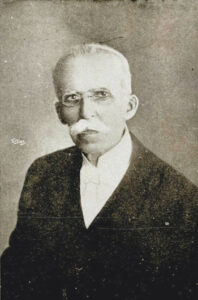
Ruy Barbosa
*Ruy Barbosa, also known as Rui Barbosa, was born on this date in 1849. He was a Brazilian diplomat, writer, jurist, and politician.
Rui Barbosa de Oliveira de Oliveira was born in Salvador, Bahia, Brazil. He gave his first public speech for the abolition of slavery when he was 19. For the rest of his life, he remained an uncompromising defender of civil liberties. Slavery in Brazil was abolished by the Lei Áurea ("Golden Law") in 1888. Part of Barbosa's legacy to history is that he authorized, as Minister of Finance on December 14, 1890, the destruction of most government records relating to slavery. The avowed reason for this destruction, which took several years to be enacted by his successors, was to erase the "stain" of slavery on Brazilian history.
However, historians today agree that Barbosa aimed to prevent any possible indemnification of the former slave-owners for this liberation. Eleven days after the abolition of slavery, a law project was deposed at the Chamber, proposing some indemnification to the slave owners in drafting the first republican constitution. He supported fiat money in Brazil instead of a gold standard. The result was chaos and instability: he was forced into exile. Years later, after his return, he was elected as a Senator.
He was a prominent defender of civil liberties who called for the abolition of slavery in Brazil; Barbosa represented Brazil in the second Hague convention, argued for Brazil's participation in World War I on the side of the Allies, and personally ordered the destruction of all government records about slavery while he was Minister of Finance. Ruy Barbosa died in Petrópolis, near Rio de Janeiro, on March 1, 1923.